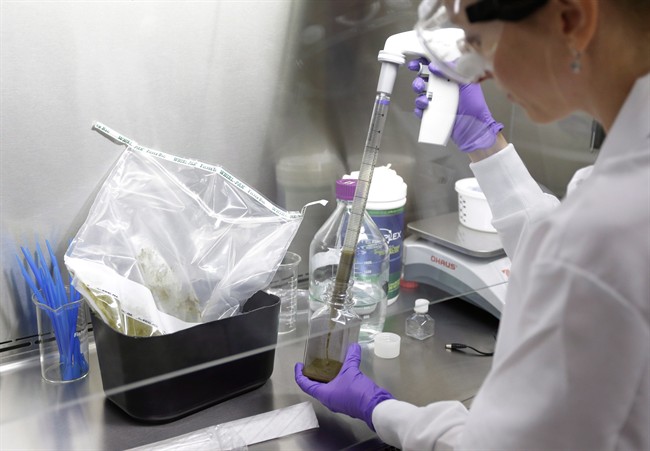TORONTO – Stool transplants appear to be a veritable home run in the treatment of recurrent C. difficile infections. Researchers are now questioning whether the therapy would work for a range of other bowel diseases, and even obesity.

The first trials looking at whether ulcerative colitis could be treated with an infusion of a healthy person’s stool produced confusing results.
One clinical trial, by Dutch researchers, was ended early when a planned interim analysis concluded that the study was not on track to be able to come up with an answer.
READ MORE: Is this ingredient in processed food to blame for obesity, stomach problems?
The same happened with a second, by researchers at McMaster University in Hamilton. But the data and safety monitoring board assessing the trial told the McMaster team they should go ahead with a few additional patients who had been enrolled but hadn’t yet received the treatment or a placebo.
By the time they were done with the extra patients, the McMaster study took a surprising turn for the better.
The group, led by Dr. Paul Moayyedi, director of the division of gastroenterology at the university’s medical school, reported recently that they did see a positive outcome from their trial. Patients with ulcerative colitis who received a stool transplant were statistically more likely to go into remission than patients who received a placebo treatment.
“I would actually call this a positive result, but one with caveats,” said Moayyedi, who along with his colleagues published the results in a recent issue of the journal Gastroenterology.
“The caveats are that this trial was stopped early … (and) the sample size is not large enough to make a definitive conclusion.”
Even with a positive result, though, it appears fecal transplants are unlikely to be as effective for colitis as they are for C. difficile.
READ MORE: Fecal transplants are changing patients’ lives
In a study that ultimately only included 70 patients, 24 per cent of those who got fecal transplants went into remission, compared to five per cent of those who got a placebo.
The journal published both the Dutch and McMaster studies together, along with an editorial that warned fecal transplants for ulcerative colitis aren’t yet ready for prime time.
“I am rooting for Moayyedi and his colleagues. I think they did an outstanding job with what they were able to do. And I was very pleased when (the trial) went from a negative to a positive” result, said Dr. Ari Grinspan, one of the authors of the editorial and a gastroenterologist at the Icahn School of Medicine at Mount Sinai Hospital in New York.
“I’m all for studying it. I think this has potential. But we just need more data. We need more numbers. We need more study.”
The principle behind fecal transplants is that in gastrointestinal diseases, the armies of bacteria in the human GI tract are out of balance. It is thought that the disease can be brought under control by replenishing stocks of good bacteria that keep the bad actors in check.
It certainly works for C. difficile diarrhea. Doctors who use fecal transplants to treat patients with C. difficile infections that cannot be cured by antibiotics report ext

Comments